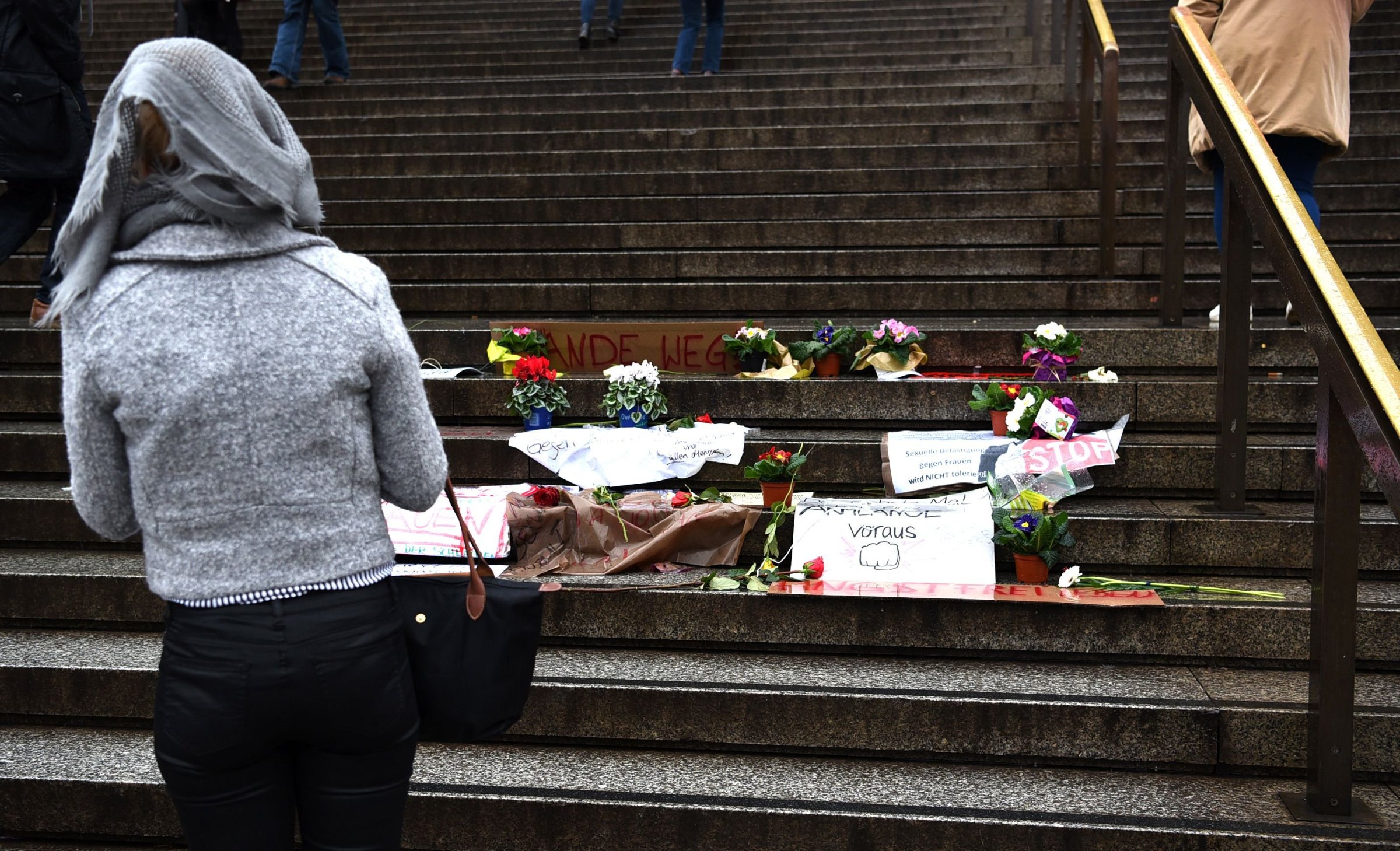
The Fuller Project for International Reporting reports on women in foreign affairs and women's rights.
For many Europeans, the attacks on more than 200 women in Cologne, Germany, on New Year’s Eve brought on deep fears about Muslim men adjusting to Western culture. The German government has confirmed that the suspects in the attacks were “almost exclusively” migrants. In response, German chancellor Angela Merkel has said she will back swifter deportations of asylum-seekers who commit crimes. Meanwhile, some anti-immigration groups have attacked migrants, often violently.
Yet too few seem to be talking about those at the center of the new year’s attacks—the women. Sexual violence hardly occurs solely at the hands of migrants, nor would it end with their deportation. The attackers should certainly be caught and punished, but German women have for years demanded an end to harassment during public festivals. For example, sexual assaults occur in troubling numbers at Oktoberfest, and in 2013, women started a hashtag #aufschrei, or outcry, for women to document their experiences with stalking, harassment, assault and rape. Despite all this, the police this year seemed caught off guard.
“It’s outrageous that the assaults have turned into a political football because it means, as usual, that it’s about men fighting other men,” Mona Eltahawy, an Egyptian-American journalist and activist who has spoken out about being sexually assaulted during the Arab Spring, said in an interview. “The central issue—women’s safety and women’s right to be free of assault—is ignored.”
With more than a million migrants having entered Europe in the last year, it is almost certain that more cultural clashes will emerge, with women at the center of them. Let’s take the conversation back from the pro and anti-migrant polemic, and make it about creating a zero-tolerance culture of assaulting and harassing women.
To start, women must make clear that they will defend their freedoms by coming on to the streets in a take-back-the-night style response, as feminists have done in Turkey in response to past New Year’s mob attacks. Women should own this conversation by pushing forward ideas of real reform. Police and political officials should defend women’s rights for their own sake and improve their plans to protect women in crowds and otherwise.
European countries should also take a hard look at what women—who make up almost a third of the refugees fleeing to Europe—face on the asylum trail. For them, rape, forced prostitution, pregnancy with no access to medical care, lack of birth control pills and sanitary supplies, and disease add to their challenges, according to the Women’s Refugee Council. Many face sexual abuse, including from their own intimate partners. Some are fleeing in fear of ISIS or sexual abuse at the hands of rebel or government fighters. Many have come from places where women are denied basic rights to education, freedom of movement and equal access to property and jobs.
Thus far European governments and aid agencies have often overlooked women’s needs. Some camps fail to offer women separate bathrooms or safe living spaces, appropriate lighting and locked quarters, humiliating them and their families. Uncoordinated and ever-changing policies leave women vulnerable to predatory smugglers. And when asylum is granted, there’s far too little effort to introduce new residents to European ideals of women’s freedom, engage in dialogue, and find common points of departure for living together.
Civil society groups should view this as an opportunity to reinforce the idea that women’s rights are universal human rights in Europe and the rest of the world. In Norway, Nina Machibya leads a course that helps immigrant men to understand Scandinavian norms for women. “We emphasize that women have a right to work and go to school and go out, drink, smoke cigarettes and dress as they want to,” she told us. Similar programs exist in other countries, and Germany should shape its own messages, and echo them in a widespread publicity campaign in Arabic.
After the attacks in Cologne, Germany must take a real stand on violence against all women, focusing on why their freedoms are essential and not negotiable—without turning on asylum seekers.
Xanthe Ackerman (@XAckerman) is the executive director of the Fuller Project for International Reporting. Christina Asquith (@FullerProject) is the founder of the Fuller Project for International Reporting and author of Sisters in War: A Story of Love, Family and Survival in the New Iraq.
More Must-Reads from TIME
- Donald Trump Is TIME's 2024 Person of the Year
- Why We Chose Trump as Person of the Year
- Is Intermittent Fasting Good or Bad for You?
- The 100 Must-Read Books of 2024
- The 20 Best Christmas TV Episodes
- Column: If Optimism Feels Ridiculous Now, Try Hope
- The Future of Climate Action Is Trade Policy
- Merle Bombardieri Is Helping People Make the Baby Decision
Contact us at letters@time.com